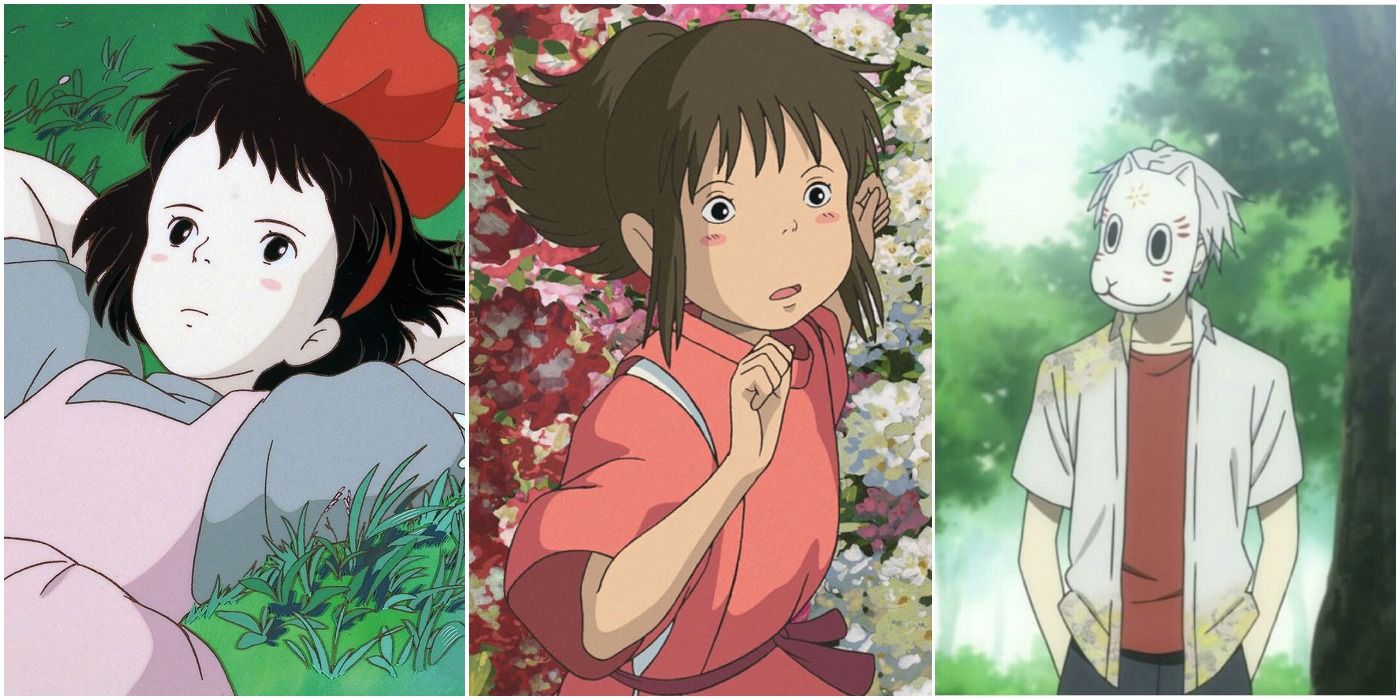


Thus, Haku’s use of " watashi" to refer to himself basically belies his appearance as a young boy whom one would expect to perhaps say "boku" instead. For one, he dresses in traditional shrine clothing for another, he speaks in a formal tone with formal vocabulary which is especially noticeable in his use of pronouns. Going further with his status as a kami (something that loses emphasis when he refers to himself as a "river" in the English), Haku portrays himself in a manner befitting his godly name. His name sounds extravagant and impressive and, when considering he needs to repeat it to the barely-grasping Chihiro (she goes on to remark, "What a name! Sounds like a god!") – Miyazaki clearly meant for that.
WATCH SPIRITED AWAY ENGLISH FULL
The English dub abridges the substance of his full, true name, giving it as “Kohaku River.” The original Japanese elaborates more on the issue, in which Haku remembers his full name as Nigihayami Kohaku Nushi. "Haku" literally means "white" which connects to both his clothing and his colouring as a dragon. While a viewer without foreknowledge of these very minor points could watch the film without any repercussions, a young Japanese child watching would have that much more to latch onto and understand about the characters.Īs a character, Haku portrays many of the subtle translation nuances that occur with the English and Japanese tracks of the film. Yubaba’s name comes from a combination of "bath" and "old woman" other characters like Zeniba ("money" and "old woman") or Kamaji ("boiler" and "old man") share in similar punning. Names like Chihiro or Sen lend quick hints as to the nature of the characters they describe. "Sen" in Japanese means "one thousand" and makes the whole scene of Yubaba contracting Sen to work both clever and perhaps even a little conventional the protagonist has her individual literally name exchanged with a number. While on the subject of names, Chihiro’s change to Sen shows another moment of language play. The English dub lost this theme by having Haku call Chihiro "Sen" while in the Japanese version, Haku always calls Chihiro by her real name. The whole issue of losing or forgetting one’s name in turn ends up being a focal plot point of Spirited Away, being the way Yubaba asserts her control over her employees.
WATCH SPIRITED AWAY ENGLISH MOVIE
While interesting enough that a single character has both her names in the movie title, the second reading makes a further suggestion of not just having two names, but of replacing her real name and not just forgetting it. (IMO, I prefer "Spirited Away" to the long Japanese title). Along with being more specific to the plot of the film by adding character names, the word "kamikakushi" means "being hidden away by the gods". Most obviously out of all the changes, the North American release’s title, Spirited Away, shortens the longer and perhaps slightly more unwieldy Japanese title of Sen to Chihiro no Kamikakushi. Whether in names, subtleties of language, or major differences of motivation – especially in the case of the titular Chihiro herself – the different language tracks end up showing just how open Miyazaki’s visuals really are to interpretation, and how audiences might wish to learn to appreciate that versatility by looking at all sides of these interpretations. By the time Studio Ghibli’s 2001 film Spirited Away came into Disney’s proverbial hands, everyone knew the rules.įittingly enough, for a film as focused on identity as Spirited Away is, a great deal of the identity and characterisation of the film changes from the original Japanese audio track to the later recorded English dub. "No cuts," Hayao Miyazaki’s producer at Studio Ghibli famously told Disney’s Harvey Weinstein using a note attached to an authentic Japanese katana he did this when Disney attained the distribution rights for Miyazaki’s earlier film Princess Mononoke, and Weinstein demanded to make several edits to no avail. The following essay excellently points out the important changes : I think the problem was that they tried to turn this into a kid's movie, and that the West in general has very high censorship when it comes to those. I was half-surprised and half-disappointed that the Eng dub is NOT as good as the Japanese dub (especially Haku's voice sounds like a 30-year-old and doesn't fit the character at all, and Chihiro's voice is annoying as hell) it also changes several important details. Out of curiosity, I watched the English dub of Spirited Away because this anime movie is my favorite.


 0 kommentar(er)
0 kommentar(er)
